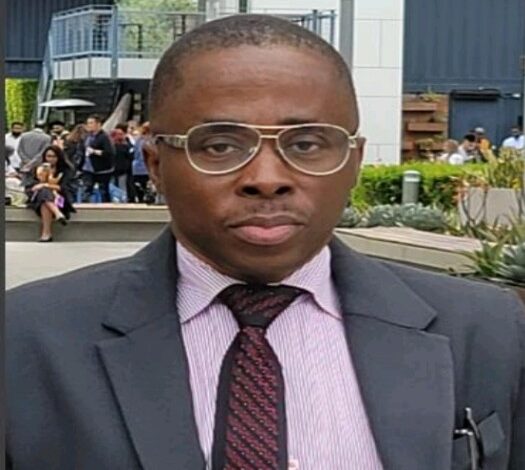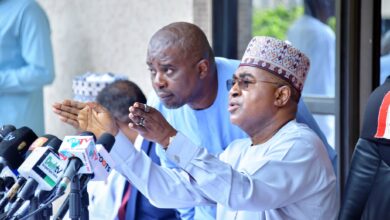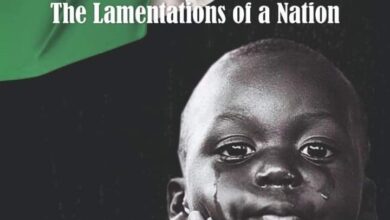
By Elisa Ehinmilorin
Akotogbo’s status as one of the oldest towns in Ondo State is an undisputed fact, steeped in a rich history that spans generations. With a heritage that stretches back centuries, Akotogbo has evolved into a vibrant community, its ancient roots woven into the fabric of its culture, traditions, and identity.
Akotogbo is strategically located in the southern senatorial district of Ondo State, bordered by the majestic Siluko River, affectionately known as Oha, which flows gently along its eastern edge. This picturesque setting has not only shaped the town’s geography but also influenced its culture, economy, and way of life.
Akotogbo’s southern frontier is flanked by the Ijuosun community, where the meandering River Fiofio serves as a natural boundary, demarcating the limits of Irele Local Government and Ilaje Ese-Odo.
This riverine border not only separates the two administrative divisions but also weaves together the cultural and ecological fabric of the region. Akotogbo boasts of one of the most thriving markets in Ondo State, attracting visitors from neighboring states every five days to engage in commerce and trade.
This bustling hub is a melting pot of diverse cultures, with a unique polylingual identity shaped by the coexistence of various tribes, including the Ikale, Edo, Urhobo, Ijaw, Itshekiri, Ilaje, Ijesha, and Kwale people.
This rich cultural tapestry makes Akotogbo a fascinating example of unity in diversity. The centerpiece of our conversation today is the remarkable distinctiveness of Akotogbo, which manifests in its linguistic diversity, rich cultural tapestry, unique monetary systems, varied occupations, and exceptional hospitality toward visitors.
This rare blend of characteristics has fostered a harmonious community, where people from diverse backgrounds coexist, interact, and thrive together, making Akotogbo a fascinating exemplar of unity in diversity. A barter system, one of the oldest monetary systems that predated the evolution of the naira, is one of the economic systems still practiced in the Akotogbo market.
It is the financial system where goods are directly exchanged for goods. My childhood memories of growing up in Akotogbo are etched vividly in my mind – a delightful blend of playfulness and responsibility. In our traditional setting, each child had assigned tasks, contributing to the household’s harmony.
After completing our chores, we would dedicate a few precious minutes or hours to studying by the night’s soft glow (Otupaleghen), fostering a love for learning that would last a lifetime.
Akotogbo was a quintessential example of a well-ordered, cosmopolitan community, where tradition and parental guidance harmonized to create a nurturing environment. The village had an unspoken yet strict code of conduct, where children knew their boundaries – venturing out to the football pitch in the evening was a privilege reserved for those who had reached a certain age, fostering a sense of responsibility and respect for authority.
Another aspect of our childhood was heavily governed by tradition and caution – swimming in the Oha River. The community was deeply convinced that the mysterious and feared ‘Iya-alaro’ was responsible for the tragic drowning incidents that occurred in the river’s treacherous depths.
This widespread belief led to a strict prohibition on swimming, especially for younger children, as a precautionary measure to avoid the clutches of this mythical entity. The validity of the ‘Iya-alaro’ legend may be a topic for debate, but one indisputable fact remains: the human body has a finite capacity to survive without oxygen underwater.
Scientific research has unequivocally established that there is a threshold beyond which humans cannot withstand the lack of oxygen, making it essential to exercise caution when engaging in water activities.
This fundamental understanding underscores the importance of respecting the natural limits of human physiology. Interestingly, despite the stringent restrictions imposed on us as children, particularly those from the upland areas of Akotogbo, our innate curiosity and determination led us to secretly learn and master the art of swimming. Before departing the ancient city, almost all of us had acquired this essential skill, a testament to our resourcefulness and the unquenchable thirst for adventure that defined our childhood.
In stark contrast, children from the market side and coastal areas were accorded a sort of ‘unspoken license’ to start swimming from as young as one year old, under the watchful eyes of their parents, many of whom were fishermen.
This early exposure to water not only made them adept swimmers but also fostered a deep understanding of the river’s rhythms and dangers, passed down through generations of aquatic expertise.
Despite the drawbacks of the barter system such as the double coincidence of wants, lack of standardization, perishable goods, limited economic growth, difficulty storing value, limited geographic area, no credit, difficulty in specialization, inefficiency, lack of record-keeping, no division of labor, and limited flexibility; the barter payment system is still thriving in Akotogbo, and it is one of the uniqueness of the town.
The Akotogbo market used to be perfectly segmented where there were different sections for different types of market wares. There was a section for the corporate wares (Uho-Alaso), a section for the “Garri” (Uholigarri), and the red oil section (Uho-Elepo) probably the first section at the entrance of that market section. Kudos to our forefathers for their foresight and ingenuity, despite their not being lettered they were able to arrange the market segmentally to avoid disruptions and unnecessary interferences.
I can still also recall vividly when Garri was being packaged and sold an “Oke” bag. “Oke” was a handmade bag specially weaved with locally made materials, it was also a unit of measurement as at that time. Many young girls in primary school earned their first coins by selling water in basins in exchange for Garri at the market.
This innovative bartering system allowed them to pay their ‘Handwork’ levies in school, fostering entrepreneurship and resourcefulness from a tender age. This entrepreneurial system is known as “Saare-Saame”. An aluminum (“lomitu”) or plastic cup floats on the basin of water which their business partners use to drink water and give them Garri in exchange.
In those days, no one worried about catching infectious diseases from sharing the same cup to drink from the same water source – a testament to the trust and simplicity of the time.
The community’s primary sources of drinking water were the streams of “Ololo”, “Okujo”, “Ogunagho”, and “Okposo”. However, due to its convenient location near the town, approximately 80% of the community relied on “Ololo” for their drinking water. As a result, the young hawkers also drew their water from “Ololo” on market days. Each hawker stored their Garri in separate containers and aimed to sell their entire stock before the market closed, ensuring they didn’t carry any leftovers home.
Their male counterparts were involved in the local haulage business, assisting Ijaws and Ilajes in transporting Garri and Red oil purchased from the “Uholigarri” and “UhoElepo” sections to the jetty. From there, the goods were shipped to the Ijaw and Ilaje settlements via waterways.
This system was known as “Alaarun”. Many diligent individuals funded their education with earnings from the Alaarun haulage business, demonstrating the value of hard work and entrepreneurship. Regrettably, our generation missed the opportunity to experience the legendary “Fagene” Stream, once an iconic landmark along Okujo Road, which was fondly reminisced about by our predecessors.
The stream’s disappearance has left a void in our collective experience, disconnecting us from the natural wonders that once defined our community’s identity. In all these chains of petty local businesses, everybody hustled as if their existence depended on it. There was no shame neither was there any child expecting manner from heavens.
Nobody was expecting free money from anybody. We didn’t rely on anyone for a quick fix or instant gratification, no handouts or shortcuts, unlike the modern concept of seeking easy money or quick gains, often referred to as ‘2k’ or ‘5k’ in today’s slang.
There was no fawning or obsequious behavior, no ostentatious displays of respect, such as raising two hands or stamping one leg, to curry favor or gain approval. I was part of a group skilled in traditional crafts like broom-making, trap-setting, and basket weaving. We would venture into distant locations like “Kesema”, “Igawua”, and “Ago-Awo” to source the raw materials, known locally as ‘Opa’, needed for our basket-making endeavors.
I extend special gratitude to Dare Idebi, my childhood friend and guide, who led us through the dense, virgin forests in search of materials. The forests were so thick that sunlight barely penetrated, but nature often rewarded us with abundant tortoises (aghon) and snails (ugben), in addition to the basket-making materials.
We also earned income from trapping wild game, “labourer” (Daily Pay) “kukumaye” and harvesting small palm fruits (ope Ikete), which supplemented our financial resources. That’s how we lived! We used our earnings to purchase books and pay for private lessons.
As fate would have it, a friend from our entrepreneurial group is reading this account today, a testament to the power of our shared experiences! Another seasonal challenge confronting the market vendors is flooding. During the peak of the rainy season, the Oha River invariably overflows, inundating nearly half (50%) of the market stalls.
This annual deluge poses a significant obstacle for traders. Just like Le Chatelier’s principle a fundamental concept in thermodynamics says, that if a system is in a dynamic equilibrium and one or more of those factors that brought the system into equilibrium is altered, the system will shift to nullify the effect of the change, the market women adapted to the seasonal flooding by relocating to higher ground during the rainy season.
This strategic move allowed them to continue their businesses uninterrupted, returning to their original stalls once the floods receded. Akotogbo provided a unique environment where we learned to swim for free and developed essential life skills like focus and dedication.
Unfortunately, I missed the chance to learn additional languages, a valuable opportunity that would have greatly benefited me. I am always impressed by my polyglot brothers, Dr. Eric Olagbayi and Dr. Temetan Moses, who speak and write multiple languages fluently, including Urhobo, Edo, and Itsekiri.
Some authors believe that being multilingual is a rare gift. However, according to Shel Perkins’ book “Talent Is Not Enough: Business Secrets for Designers,” success comes from a combination of deliberate practice, dedicated mentoring, and passion.
My brothers’ language skills inspired me, but our generation didn’t see the value in learning other languages. By God’s grace and providence, we were all born in the same town and attended both primary and secondary schools in the same town of Akotogbo.
While Dr. Olagbayi and Dr. Temetan took their journey to become polyglots seriously through constant and diligent practice, learning languages from experienced teachers, and being passionate about the learning process, our generation coming behind them didn’t see any advantages in learning other languages free of charge. This reminds me of my experience when I was posted to Abuja for the mandatory National Youth Service Corps assignment.
Immediately after the three rigorous weeks in the hands of the military, the day finally came when we were posted to our places of primary assignments. Everyone was very happy because we were finally set free from “the Khaki Boys”, but this ecstasy was swiftly short-lived because many Corp Members were rejected in their places of primary assignments.
I had my bitter rejection experience from GSS Yaba, Dangara in the Abaji area council. I was finally redeployed to the Federal Character Commission (FCC) after some back-and-forth from Area 3. That was when Ifayefunmi S.A. of blessed memories, was the commissioner representing Ondo State. Having your place of primary assignment within Abuja Municipal Area Council was every Corper’s wish because it availed many opportunities and granted access to some government establishments and parastatals.
It also granted the privileges of writing commercial banks’ aptitude tests and getting employment while some colleagues were in the remotest part of the Federal Capital Territory serving their fathers’ land.
The irony of the whole thing is that our colleagues in the villages saved their Federal Allowance 100%, while both our “Federal Allawee” and Place of Primary Assignment’s stipend may not sustain us for the whole month in Abuja if we are not prudent with spending. Upon receiving my redeployment letter to the Federal Character Commission, I promptly reported to the office and presented myself to the administrative officer in the Director of Personnel Management’s office.
As part of his official duties, this officer was responsible for overseeing the absorption of corps members into the Commission’s one-year mandatory program, and I was eager to begin this new chapter. One of the policies and standing rules was that whenever a Corp member is taken from Ekiti State, another cannot be absorbed from Ondo State.
Upon arriving at the office, I found the administrative officer engrossed in a lengthy telephone conversation, speaking in the rich, melodic tones of the Urhobo language. My culturally diverse background, having been exposed to various languages and dialects, allowed me to easily identify the language.
As I waited patiently for the officer to conclude their call, I took the opportunity to strategize and consider the most effective approach to introduce myself and discuss my redeployment. Unknown to me, a fellow corps member from Ekiti, who happened to be my coursemate in university, had already been absorbed into the program, setting the stage for an unexpected rejection again.
The presence of an Indigenous Ekiti corps member in the parastatal had already dealt me a technical knockout, given the existing policies that prioritized local representation. This unforeseen circumstance effectively diminished my chances of being absorbed into the program, leaving me to reassess my strategy and explore alternative options. In a last-ditch effort to break the ice, I decided to take an informal approach and greet the administrative officer in his native Urhobo language.
As soon as he ended his phone call, I extended a warm and respectful greeting, “Migwor sir!” – a phrase deeply rooted in Urhobo culture and tradition. The officer’s demeanor transformed instantly, his face lighting up with a warm smile, as he was taken aback by my unexpected display of cultural awareness and respect.
Meanwhile, two visitors met me in the office while he was on the telephone. He quickly attended to them first so that he would probably have time for me. The moment those two visitors left, he turned to me. I repeated the warm Urhobo greeting, ‘Migwor sir!’ He responded with a smile, saying ‘Vre doo’. He jokingly suggested that I must have overheard him speaking on the phone earlier, impressed by my cultural awareness.
He then extended his hand, and I handed over my redeployment letter from NYSC, marking the beginning of our interaction. He teased me, saying my name didn’t sound typically Urhobo. I explained that in my hometown of Akotogbo, Ondo State, the Urhobo and Ikale tribes are deeply intertwined, making them inseparable.
He was intrigued and asked me to confirm the name of my town, which I proudly repeated: Akotogbo. He nodded thoughtfully and said, ‘Oh yes, Akotogbo is indeed a notable place – it’s the birthplace of the renowned Justice Irikefe.’ His eyes sparkled with interest, revealing a deep respect for the esteemed jurist and a newfound connection to my hometown. I nodded in agreement, pretending to be familiar with Justice Irikefe, hoping to sustain the positive momentum of our conversation.
Although I didn’t know much about him, I didn’t want to reveal my ignorance and risk disrupting the rapport we had established. As our conversation reached a crescendo, I enthusiastically shared more connections between Akotogbo and the Urhobo community. I mentioned that several notable individuals, including Igini Michael, the former president of the University of Benin (92/93), and the Oruma brothers – Wilson, Paul, and Dominic – all hailed from Akotogbo.
Furthermore, I revealed that three of my sisters had married into Urhobo families, highlighting the strong familial bonds between our communities. My first in-law, traces his roots to Efuru, a vibrant community in the Uvwie Local Government Area of Delta State, further illustrating the rich cultural tapestry and connections between our families and the Urhobo people.
He exclaimed, Wao, we have just accepted a Corper from Ekiti State, and going by the standing rules, we cannot absorb Corpers from both Ondo and Ekiti State concurrently. He concluded by saying, do you know what ‘Oniovo’? We will take you! With a warm smile, he exclaimed, ‘In fact, let me expedite the process and prepare your acceptance letter right away, so you can submit it to the NYSC office today.
His words conveyed a sense of urgency and willingness to facilitate a seamless transition, demonstrating his enthusiasm for my redeployment and eagerness to support my journey.
Despite policy restrictions, the officer accepted me into the program, highlighting the power of cultural connection. This experience taught me that embracing cultural diversity can unlock opportunities and foster connections. I am very sure that if Dr. Olagbayi and Dr. Temetan accidentally found themselves among the Itsekiris, Edos, and Urhobos anywhere in the world today, they wouldn’t need much introduction before they would be fully welcomed.
I am grateful for my culturally diversified background and the people who contributed to my language journey, including my very good brother and friend, Comrade Agadama Ese Adefemi, who taught me some Urhobo phrases. In conclusion, cultural diversity is a valuable asset that can foster development in our communities.
By embracing and appreciating our differences, we can break down barriers and build bridges. My story demonstrates the power of language diversity in unlocking opportunities and fostering connections. I hope it inspires others to embrace cultural diversity and reap its benefits.
Elisa Ehinmilorin writes from Los Angeles, California in the United States of America.







